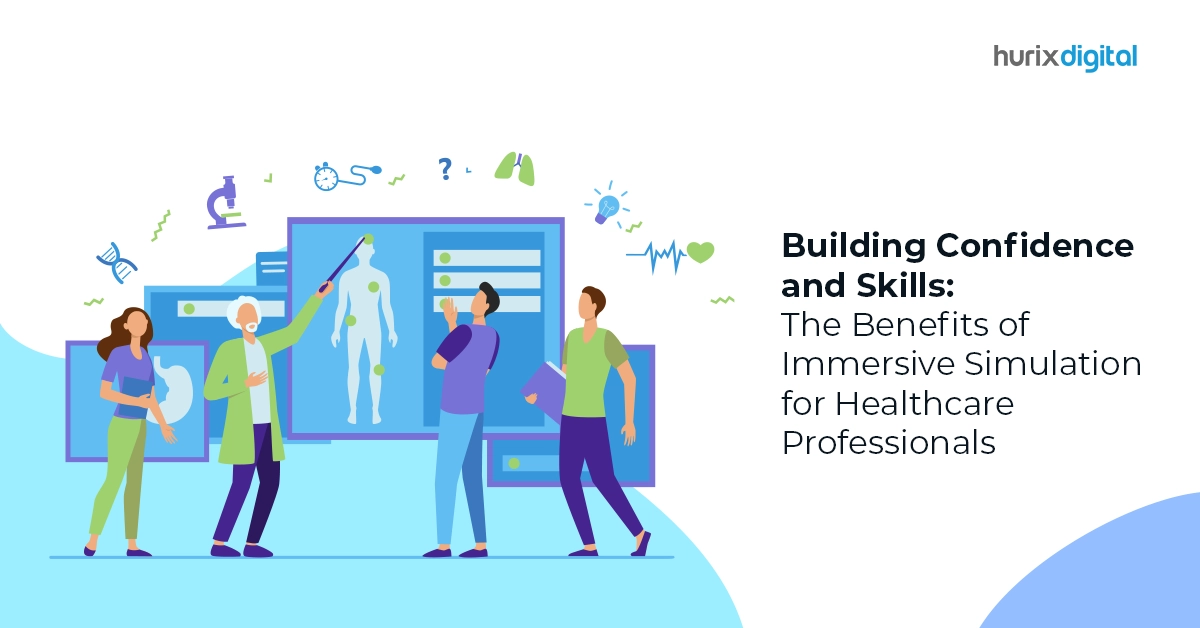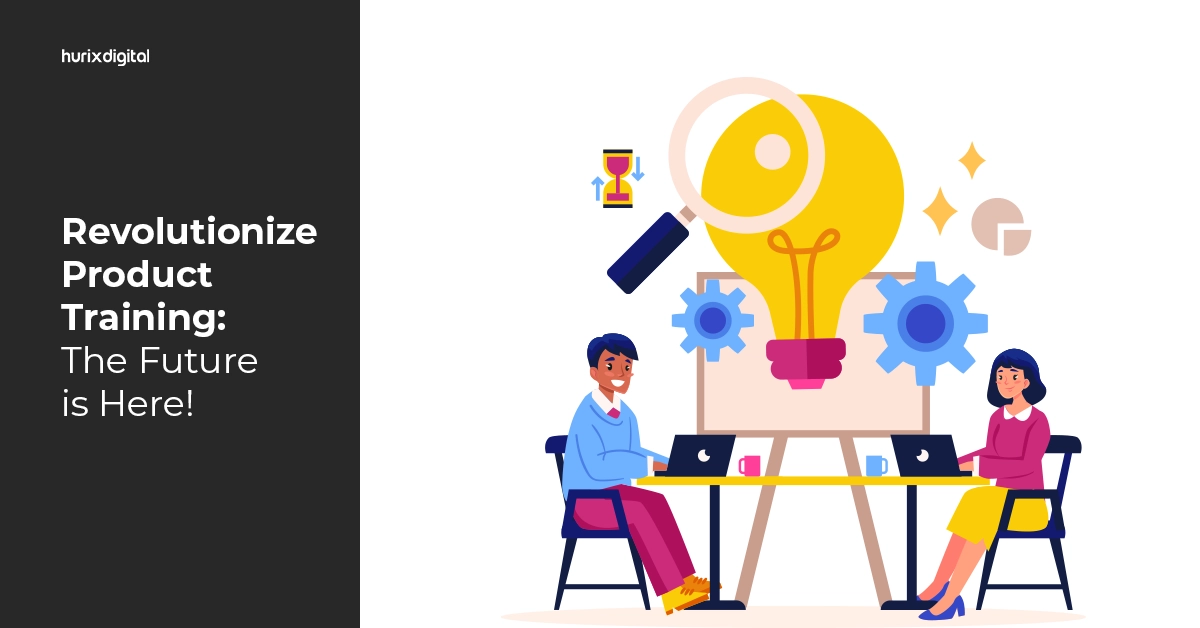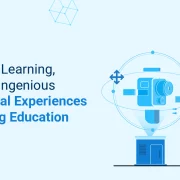
6 Advantages of Virtual Reality Training for the Energy Sector
Summary
This article examines Virtual Reality training in the energy sector, emphasizing its benefits for safety, cost efficiency, and learning outcomes, along with its applications in industry training.
A recent research report highlights that the Virtual Reality (VR) in the energy, oil, and gas segment is expected to exceed a staggering $4.5 billion by 2032. This phenomenal growth is primarily driven by the increased need for safe, effective, and cost-efficient corporate training solutions in this evolving industry.
VR training has, therefore, become an essential tool in today’s dynamic and rapidly evolving energy sector. It can bring significant benefits in areas such as safety, reduced risks, contextual knowledge delivery, enhanced engagement, faster skill acquisition, and customizable experiences.
This article will explore more about virtual reality digital learning solutions in the energy sector and how they can help enhance the training experience in this high-risk sector.
Table of Contents:
- What is Virtual Reality Training in the Energy Sector?
- Examples of Virtual Reality Training in the Energy Sector
- Benefits of Virtual Reality Training in the Energy Sector
- To Wrap
What is Virtual Reality Training in the Energy Sector?
Virtual Reality (VR) corporate training solution in the energy sector is a specialized way of learning that offers a completely safe yet engaging learning environment for employees to get trained and learn the required skills.
Leveraging VR technology, organizations in the energy sector can simulate various real-life scenarios to help workers practice complex day-to-day tasks and other specialized skills without any associated risks that generally come with such workforce learning and development solutions.
The highlight here is that applications of VR learning in the energy sector are varied and can be further customized to meet the unique requirements of different work scenarios in the industry.
Also Read: The Role of Artificial Intelligence in Enhancing Medical Training Programs for Employees
Examples of Virtual Reality Training in the Energy Sector
A few of the common examples of VR-based online training delivery methods in the energy sector include:
1. Safety Training
Virtual reality in corporate training solutions by Hurix Digital can help recreate hazardous situations including gas leaks or oil fires, thus helping employees to better understand as well as practice various emergency response rules and processes in a completely safe and known environment.
This, in turn, allows employees to develop the right set of skill sets required to manage real-life hazardous situations in a better way.
2. Emergency Drills
Virtual reality training and other interactive eLearning simulations can help workers in the energy sector perform real-life emergency or hazard response drills, like sudden evacuation in crises or immediate first aid requirements.
This helps teams to understand and practice planned emergency responses and also know about the areas that require improvement without causing any disruption to day-to-day operations or exposing workers and employees to risk.
3. Maintenance Training
Virtual reality can help technicians and other workers in the energy industry practice various maintenance procedures, identify non-working or faulty parts, and access important documents and manuals with ease. Likewise, VR can also help employers assess different skills, qualifications, and training benchmarks.
Benefits of Virtual Reality Training in the Energy Sector
By including virtual reality simulations in their training programs, companies in the energy sector can achieve multiple benefits by effectively tackling the main issues related to practical training. Among these are-
1. Enhanced Safety
One of the key advantages of VR training in the energy sector is its ability to replicate real-life, hazardous conditions without any risk. By simulating practical yet dangerous conditions without putting employees at risk and danger, virtual reality training helps improve overall safety awareness and make them response-ready.
2. Contextual Knowledge in Real-time
When it comes to the energy sector, theoretical knowledge is as important as practical one, especially due to the involvement of complex machinery and sophisticated systems. VR-based training can be instrumental here as it can help display the related information during the practice for offering contextual knowledge to workers in real-time.
3. Cost Savings
Implementing virtual reality training in the energy sector helps organizations eliminate costly physical equipment and other facilities typically required for hands-on training. This, in turn, leads to significant cost savings for organizations, covering all the expenses related to equipment procurement, maintenance as well as facility upkeep.
4. Customizable Training Programs
Virtual training technology in the energy sector allows you to create customized training programs based on aspects such as skill levels, roles, and so on. In addition to this, organizations in the energy sector can come up with interactive experiences based on unique needs and to address specific challenges in the field.
5. Remote Training Accessibility
Another advantage of VR training in the energy sector is that it helps facilitate easy remote access to training modules, offering high flexibility for workers working from remote locations or other inaccessible areas.
By accessing VR training programs or using AI in training and development through different compatible devices, employees can participate in training sessions from anywhere with just an internet connection. This kind of accessibility enhances workforce inclusivity and also minimizes disruptions by eliminating the need for employees to travel to centralized training facilities.
6. Increased Employee Engagement
Data suggests that VR-based training experiences can lead to enhanced engagement and knowledge retention by engaging multiple senses. This creates an immersive and impactful corporate training solution.
Another research by PWC highlights that VR training in the oil & gas industry can improve learner confidence by as high as 275% to learn new skills after training. VR-based training allows workers to practice important tasks and solve issues in a very practical and realistic setting to help promote a better understanding of complication systems/ procedures.
Also Read: How to Create an Effective Instructional Design for Your Employees?
To Wrap
Known for its complicated systems and critical operations, the energy sector is undergoing a significant shift. The integration of VR corporate training solutions in this dynamic sector offers a completely safe and immersive environment where employees working in the industry can simulate complex processes.
These safety trainings are very stimulating, help reduce training time, and offer a risk-free virtual version of the real world for organizations working in the energy sector.
If you are also an organization working in the energy sector and looking for effective virtual reality safety corporate training solutions for your workforce, Hurix Digital offers the best options. We help companies transform their training strategies and methodology to drive sustainable results with customized solutions.
Get in touch with our experts to learn about excellent VR training options for all your needs.

A highly enthusiastic and motivated sales professional with over twenty five years of experience in solution selling of training-related applications and services. Maintains an assertive and dynamic style that generates results. Ability to establish long-term relationships with clients built on trust, quality of service and strategic vision. Specializes in financial services, higher ed, publishing and government in the areas of learning and development.







